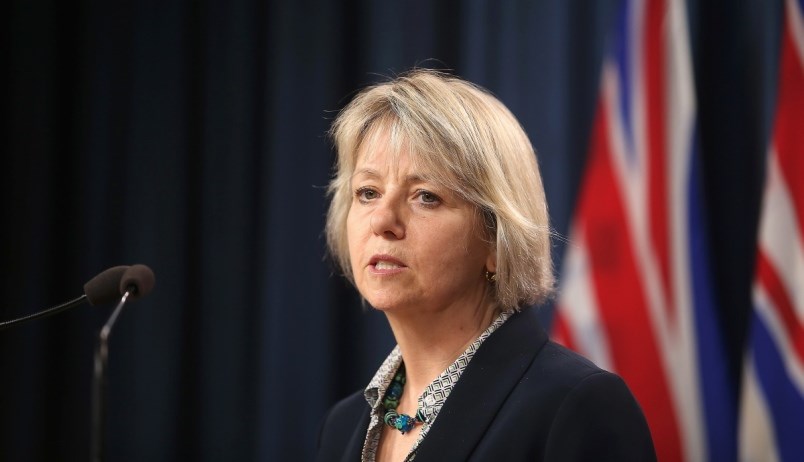Four more cases of COVID-19 have been confirmed in the Northern Health region.
On Friday, provincial health officer Dr. Bonnie Henry said there has been a total of 21 cases of the disease detected in the north. One additional person in northern B.C. was hospitalized on Friday, and the number of patients currently in critical care remained three.
The number of people in the Northern Health region who had fully recovered remained a seven, leaving 14 active cases in the north.
"The risk remains high for everyone in British Columbia. We are in the middle of it. This is our time to hold the line," Henry said. "All of us must continue to do those basic things: to clean our hands, to stay at home as much as possible... We have to have united focus for the next while."
The province saw a total of 53 more confirmed cases, bringing the B.C. total of 1,174.
Four more people in B.C. died from COVID-19, Henry said, of which three were from the outbreaks at the Lynn Valley Care Centre and Haro Park Centre long-term care facilities in the Lower Mainland. In total, 24 of the 35 COVID-19 deaths in B.C have been linked to those two outbreaks, Henry said.
Across the province 146 people were hospitalized for the disease as of Friday afternoon, with 64 in critical care. The number of people who had fully recovered grew to 673, up from 641 on Thursday.
The province is now in the second incubation period for COVID-19 since strong social distancing measures were put in place, Henry said.
"The first incubation period, we knew there were people who had already been exposed. There was nothing we could do but try to detect them early and make sure treatment was available," she said. "This next two weeks is our line. This is the time when we'll see if our measures are working."
While the number of new cases in B.C. has continued to grow, the rate of infections hasn't been accelerating, she said.
"We're coping right now, but there are many known unknowns and unknown unknowns," Henry said. "We're still part of that global community, and what happens in the United States effects what happens here."
B.C. Health Minister Adrian Dix said there are 4,399 hospital beds available across the province. As of Friday afternoon, 59 per cent of hospital beds in the province were currently occupied and 54.3 of critical care beds were full, he said.
A major contributor to the available space in B.C. hospitals was the cancellation of elective surgeries, Dix said. As of Friday, 11,276 elective surgeries – including 1,208 hip and knee surgeries – have been cancelled across the province.
"We are committed to getting back to these surgeries," he said.
Health authorities have been looking at agreements with private clinics to help manage the backlog of surgeries once the COVID-19 pandemic has ended, Dix said.
The importance of managing the available supply of personal protective equipment like N95 masks was highlighted on Friday when U.S. President Donald Trump demanded Minnesota-based mask producer 3M stop the export of masks to Canada and other countries (see full story).
Retaliating with export bans aimed at the U.S. would just escalate the problem and help nobody, Dix said.
"We shouldn't respond with retaliation, we should respond with force, but not with retaliation," Dix said. "What we need to do is convince our American friends that this is wrong for them and wrong for us. COVID-19 doesn't know borders. We are generally, as a whole globe, in this together."
Canada and B.C. have a strong interest in seeing the U.S. contain its outbreak of the pandemic, he added. The outbreak in Washington state directly impacted B.C.
"We strongly support the efforts of the government of Canada to ensure the supplies of (protective equipment)," Dix said. "We are not going to stop until we get the tools and (protective equipment) we need."



